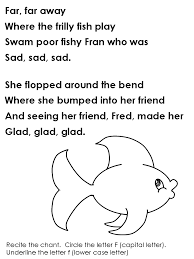poem

n. 诗
n.
诗;韵文;诗一样的作品;富有诗意的东西
变形
复数:poems
双语释义
n.(名词)[C]诗,韵文 a piece of writing, arranged in patterns of lines and of sounds, expressing some thought, feeling, or human experience in imaginative language
英英释义
poem[ 'pəuim ]
n.a composition written in metrical feet forming rhythmical lines
同义词:verse form
词汇搭配
用作名词 (n.)
动词+~
appreciate poem欣赏诗
compose poem作诗
indite poem作诗
memorize poem背诗
recite poem朗诵诗
say poem朗诵诗
set poem to music把诗谱上曲
write poem作诗
形容词+~
heroic poem史诗
immortal poem不朽的诗篇
long poem长诗
narrative poem叙事诗
pastoral poem田园诗
popular poem大众化诗歌
suggestive poem含义深刻的诗
名词+~
child poem儿童诗歌
介词+~
in poem在诗里
~+介词
poems by sb由某人创作的诗
poem of nature描写大自然的诗
poem on peace和平诗
词组短语
love poem爱情诗
narrative poem叙事诗;叙述诗
prose poem n. 散文诗
symphonic poem交响诗
同近义词辨析
verse, poetry, poem这组词都有“诗”的意思,其区别是:
verse多指诗句、诗行或诗节,也可作诗歌、韵文的总称。
poetry指诗的总称。
poem通常指一首诗或诗体文。
双语例句
用作名词(n.)
He wrote a poem praising her loveliness.
他写了一首诗赞扬她的美丽。
The girl repeated the poem after I had read it twice.
我读了两遍这首诗,这个小女孩就会背诵了。
The poem showed great intensity of feeling.
这篇韵文表现出强烈的激情。
权威例句
The Reader, the Text, the PoemThe Reader, the Text, the Poem
Per-oral endoscopic myotomy (POEM) for esophageal achalasia
Peroral endoscopic myotomy (POEM) for oesophageal achalasia: Preliminary results in humans
The reader, the text, the poem : the transactional theory of the literary work / Louise M. Rosenblatt
The Reader, the Text, the Poem: The Transactional Theory of the Literary Work by Louise M. Rosenblatt
Long-term outcomes of an endoscopic myotomy for achalasia: the POEM procedure
EASI, (objective) SCORAD and POEM for atopic eczema: responsiveness and minimal clinically important difference.
Comparison of perioperative outcomes between peroral esophageal myotomy (POEM) and laparoscopic Heller myotomy
Perioperative management and treatment for complications during and after peroral endoscopic myotomy (POEM) for esophageal achalasia...
poem
poem: [16] A poem is etymologically ‘something created’. The word comes via Old French poeme and Latin poēma from Greek póēma, a derivative of poeín ‘make, create’. The original sense ‘something created’ developed metaphorically via ‘literary work’ to ‘poem’. From the same Greek verb was derived poētés ‘maker’, hence ‘poet’, which produced Latin poēta and in due course English poet [13] (the Old English word for ‘poet’ had been scop, a relative of modern English scoff). Poetry [14] originated as a medieval Latin derivative of poēta. Poesy ‘poetry, poems’ [14], like poem originally a derivative Greek poeín, now has an archaic air, but it has a living descendant in posy [16], which started life as a contraction of poesy.=> poesy, poet, poetry, posy
poem (n.)
1540s (replacing poesy in this sense), from Middle French poème (14c.), from Latin poema "composition in verse, poetry," from Greek poema "fiction, poetical work," literally "thing made or created," early variant of poiema, from poein, poiein, "to make or compose" (see poet). Spelling pome, representing an ignorant pronunciation, is attested from 1856.
1. The poem uses simple language.
这首诗用语简单。
《牛津词典》
2. The poem has been set to music.
这首诗被谱了曲。
《牛津词典》
3. He read a poem entitled 'Salt'.
他朗诵一首题为《盐》的诗。
《牛津词典》
4. The poem contrasts youth and age.
这首诗对比了青春与老年。
《牛津词典》
5. This poem comes from his new book.
这首诗出自他的新书。
《牛津词典》
6. He read the poem aloud.
他朗读了这首诗。
《牛津词典》
7. He recited the whole poem in one breath.
他一口气背出了整篇诗。
《牛津词典》
8. The poem recalls Eliot's 'The Waste Land'.
这首诗令人想起艾略特的《荒原》。
《牛津词典》
9. She can recite the whole poem from memory.
她能背诵全诗。
《牛津词典》
10. She cites a favourite poem by George Herbert.
她引用了一首她所喜爱的乔治·赫伯特的诗。
《柯林斯英汉双解大词典》
11. The students were asked to interpret the poem.
学生们被要求诠释那首诗的意义。
《牛津词典》
12. The poem is too long to quote in its entirety.
这首诗太长,不能全部引用。
《牛津词典》
13. The poem conveys his deep reverence for nature.
这首诗表达了他对大自然的深深崇敬之情。
《牛津词典》
14. There are, of course, deeper meanings in the poem.
当然,这首诗里还有更深层的含义。
《牛津词典》
15. In this poem Fitch plays with words which sound alike.
在这首诗中,菲奇巧妙地运用了近音词。
《牛津词典》
16. He recited the whole poem without making a single slip.
他一字不差地背诵了全诗。
《牛津词典》
17. In the poem he laments the destruction of the countryside.
在那首诗里他对乡村遭到的破坏流露出悲哀。
《牛津词典》
18. The teacher helped them tease out the meaning of the poem.
老师帮助他们弄清楚那首诗的含义。
《牛津词典》
19. The poem humorously describes local characters and traditions.
那首诗幽默地描述了当地的人物和传统。
《牛津词典》
20. To write and publish this poem was a daring, transgressive act.
写作和出版这首诗是胆大包天、违背道德的行为。
《柯林斯英汉双解大词典》
21. The poem encapsulates many of the central themes of her writing.
这首诗是对她许多著作的核心主题的概括。
《牛津词典》
22. It is mere surmise that Bosch had Brant's poem in mind when doing this painting.
博斯画这幅画时头脑里想着勃朗特的诗,这只是猜测而已。
《柯林斯英汉双解大词典》
23. The natural images in the poem are meant to be suggestive of realities beyond themselves.
诗中自然景象的描写意在使人联想起那以外的现实。
《柯林斯英汉双解大词典》
24. "The Whipping Block" has never been published, but it's supposed to be a really good poem.
《鞭笞刑具》从未发表,但据说它是一首相当好的诗。
《柯林斯英汉双解大词典》
25. Make two copies of this poem.
把这首诗复写两份。
《新英汉大辞典》
26. The poem was all the rage then.
这首诗在当时十分流行。
《新英汉大辞典》
27. He can recite the poem fluently.
他把那首诗念得琅琅上口。
《新英汉大辞典》
28. Who is Alice's poem about?
爱丽丝的诗是关于谁的?
youdao
29. You can recite the poem, can't you?
你会背诵这首诗,不是吗?
youdao
30. He can recite that poem from memory.
他能凭记忆背诵出那首诗。
youdao
